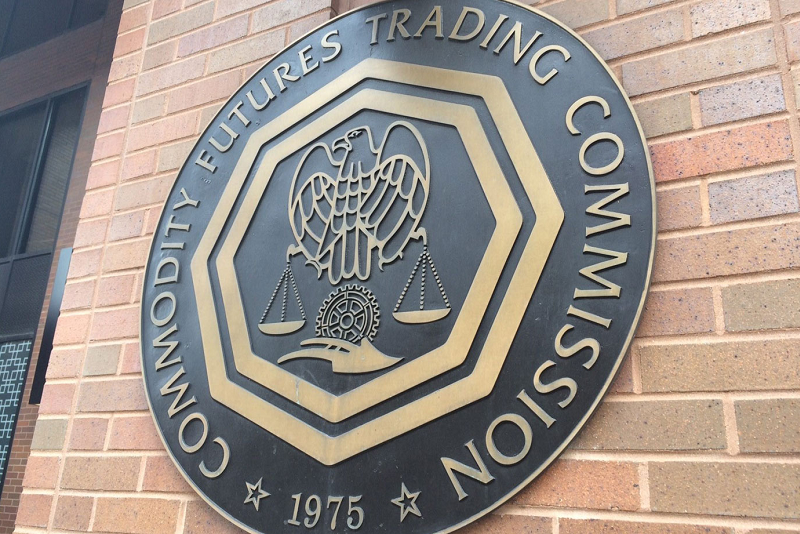BROWSE BY TOPIC
- Bad Brokers
- Compliance Concepts
- Investor Protection
- Investments - Unsuitable
- Investments - Strategies
- Investments - Private
- Features/Scandals
- Companies
- Technology/Internet
- Rules & Regulations
- Crimes
- Investments
- Bad Advisors
- Boiler Rooms
- Hirings/Transitions
- Terminations/Cost Cutting
- Regulators
- Wall Street News
- General News
- Donald Trump & Co.
- Lawsuits/Arbitrations
- Regulatory Sanctions
- Big Banks
- People
TRENDING TAGS
Stories of Interest
- Sarah ten Siethoff is New Associate Director of SEC Investment Management Rulemaking Office
- Catherine Keating Appointed CEO of BNY Mellon Wealth Management
- Credit Suisse to Pay $47Mn to Resolve DOJ Asia Probe
- SEC Chair Clayton Goes 'Hat in Hand' Before Congress on 2019 Budget Request
- SEC's Opening Remarks to the Elder Justice Coordinating Council
- Massachusetts Jury Convicts CA Attorney of Securities Fraud
- Deutsche Bank Says 3 Senior Investment Bankers to Leave Firm
- World’s Biggest Hedge Fund Reportedly ‘Bearish On Financial Assets’
- SEC Fines Constant Contact, Popular Email Marketer, for Overstating Subscriber Numbers
- SocGen Agrees to Pay $1.3 Billion to End Libya, Libor Probes
- Cryptocurrency Exchange Bitfinex Briefly Halts Trading After Cyber Attack
- SEC Names Valerie Szczepanik Senior Advisor for Digital Assets and Innovation
- SEC Modernizes Delivery of Fund Reports, Seeks Public Feedback on Improving Fund Disclosure
- NYSE Says SEC Plan to Limit Exchange Rebates Would Hurt Investors
- Deutsche Bank faces another challenge with Fed stress test
- Former JPMorgan Broker Files racial discrimination suit against company
- $3.3Mn Winning Bid for Lunch with Warren Buffett
- Julie Erhardt is SEC's New Acting Chief Risk Officer
- Chyhe Becker is SEC's New Acting Chief Economist, Acting Director of Economic and Risk Analysis Division
- Getting a Handle on Virtual Currencies - FINRA
ABOUT FINANCIALISH
We seek to provide information, insights and direction that may enable the Financial Community to effectively and efficiently operate in a regulatory risk-free environment by curating content from all over the web.
Stay Informed with the latest fanancialish news.
SUBSCRIBE FOR
NEWSLETTERS & ALERTS
CFTC Exodus: Enforcement Chief Stepping Down
Aitan Goelman, head of CFTC Enforcement, announced his departure, effective February 3, during a broad exodus of prosecutors and regulators in the Obama administration’s final days. The departures, all expected, included Leslie Caldwell, the head of the Justice Department’s criminal division, Bill Baer, a senior Justice Department official, and Andrew Ceresney, who led the SEC enforcement division. Preet Bharara, the U.S. attorney in Manhattan, will be one of the few Obama appointees to remain in his post under the next administration.
In 2015, Mr. Goelman imposed the agency’s largest-ever penalty: an $800 million settlement with Deutsche Bank for manipulation of the London interbank offered rate (Libor). Late last year, Mr. Goelman took aim at Goldman Sachs for trying to manipulate another global benchmark, for fixed interest rate swaps (Isdafix). And just this month, the agency struck a $5 million settlement with Jon Corzine, who ran MF Global when it collapsed in 2011.
Meanwhile, the CFTC is without a chairman – given that the current chairman, Timothy Massad, is stepping down when Mr. Trump becomes president on Friday. Christopher Giancarlo, a Republican commissioner, will most likely become its interim leader and is reportedly under consideration to be nominated to become chairman.
Mr. Goelman said he expected the new administration to continue pressing cases of Wall Street wrongdoing. Still, he warned that the commission might not be able to do so if Congress deprives it of funding, a longtime source of tension between the agency and lawmakers. “There’s a lot of misconduct out there, some of which we need more money to catch,” Mr. Goelman said.
The need for resources took on greater importance as Mr. Goelman pushed for more cases to go to trial. As part of a new settlement policy, he generally offered defense lawyers the most generous proposal first. This approach, he said, provided a more credible threat of going to trial, which the agency did indeed do last year when it tried three cases, compared with only two trials in the last five or so years combined.





